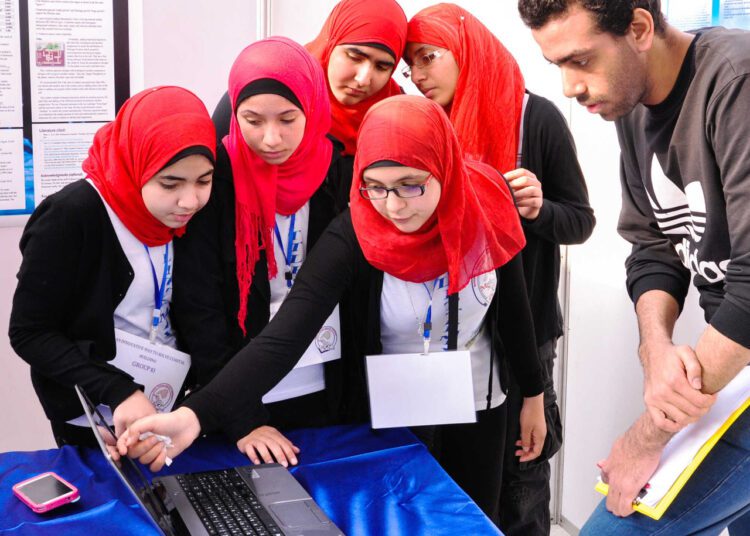The latest upheavals in education are results of the government’s plan to restore Egypt’s global pioneer status and soft power in the Middle East and Africa.
A recent report by the World Bank (WB) hails Egyptian experience in revamping the education system.
The Ministry of Education Centre for Curriculum and Instructional Materials Development (CCIMD) has upgraded curricula in tandem with key international education institutions from the US, Finland, France, Singapore and other countries, Minister of Education Tarek Shawki said in recent remarks.
The updated curricula are a 100-per cent genuine Egyptian product.
The newly-developed educational books aim to boost the Egyptian identity, the minister said, pointing out that these books will work as Egypt’s investment in the education sphere for the next 50 years.
The new system that the government is planning to have fully in place by 2030 replaces a decades-long culture of memorisation for tests with one focused on student-centred teaching and competency-based learning for life.
As part of the education revamp, the government is building more classrooms to reduce overcrowding and facilitate access to the Internet, the knowledge bank and educational platforms established by the Ministry of Education.
Meanwhile, USAID and the Ministry of Education, in partnership with Egyptian companies, recently signed partnership agreements for six technology schools across Egypt specialising in retail, electronics and artificial intelligence.
These schools are the newest development in the US government’s $1.7 billion (LE26.7 billion) investment in education in Egypt of the past 40 years. The schools will promote innovation and creativity, encourage a culture of entrepreneurship, and connect students to jobs in partnership with the private sector.
“The US Government places great emphasis on assisting Egypt in implementing its 2030 strategy that includes enhancing the quality of technical and vocational education to align with international standards,” US Ambassador in Cairo Jonathan R. Cohen said in recent press remarks.
Egypt currently has 28 applied technology schools in Cairo, Giza, Qaloubiya, Alexandria, Port Said, Suez, and in Upper Egypt.
There are already three technology universities in New Cairo, Quesna, and Beni Sueif. Three public universities have opened in Luxor, New Valley and Matrouh.
The Ministry of Education and Technical Education plans to introduce ten applied technology schools annually until 2030, a ministry statement said.
The government seeks to develop the education system and raise the efficiency of schools, integrate modern technology into education, revamp curricula and adopt new systems to develop students’ skills, Shawki said.
According to a recent cabinet media centre report, Egypt was 11 places up to 72nd for per-university education on the Global Knowledge Index.
Egypt also advanced three positions in education ranking issued by US News, coming 39th in the 2021.
In the technical education and vocational training, Egypt was up 12 places to 68th on the Global Knowledge Index, the report said.
The presidential rural development initiative, Decent Life, covers investments in improving education and the creation of state and private universities, as well as mobile classrooms in all governorates.
The strategy will gear technical education to the needs of the labour market and expand technological universities.
Under the terms of the initiative, LE7.5 billion will go to developing education in the villages nationwide with new schools and classrooms.






Discussion about this post